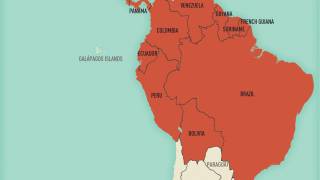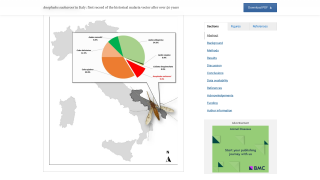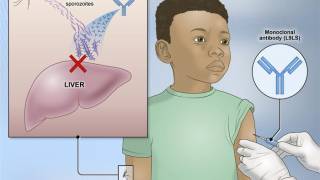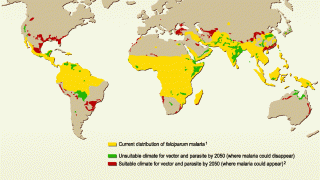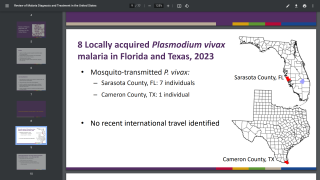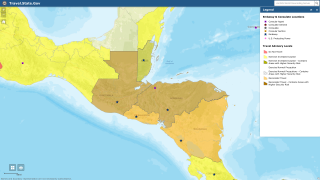Malaria Overwhelmed 11 Countries in 2022

Despite strides in expanding access to insecticide-treated nets and medicines that help prevent malaria in children and pregnant women, more people were infected with malaria in 2022, according to a new report published by the World Health Organization (WHO).
In 2022, there were an estimated 249 million malaria cases globally, exceeding 2019 by 16 million patients.
The WHO's 2023 World Malaria Report, published on November 30, 2023, discloses the changes that influence the behavior and survival of the malaria-carrying Anopheles mosquito.
"Sustainable and resilient malaria responses are needed now more than ever, coupled with urgent actions to slow the pace of global warming and reduce its effects," said Dr. Tedros Adhanom Ghebreyesus, WHO Director-General, in a press release.
Malaria can be a severe, potentially fatal disease, mainly caused by Plasmodium falciparum.
In 2022, 34 countries reported fewer than 1,000 cases of malaria, but 11 countries carried the highest burden of malaria, and rates of new infections and deaths have leveled.
The countries include Burkina Faso, Cameroon, the Democratic Republic of the Congo, Ghana, India, Mali, Mozambique, Niger, Nigeria, Uganda and the United Republic of Tanzania.
These countries, supported through the WHO "High burden to high impact" approach, saw an estimated 167 million malaria cases and 426,000 deaths in 2022.
Given the outbreak's current trends, progress toward the WHO's 2030 global malaria strategy is off track by a wide margin.
"It is crucial to recognize the multitude of threats that impede our response efforts. Climate variability poses a substantial risk, but we must also contend with challenges such as limited healthcare access, ongoing conflicts, and emergencies, the lingering effects of COVID-19 on service delivery, inadequate funding, and uneven implementation of our core malaria interventions," commented Dr Matshidiso Moeti, WHO Regional Director for Africa.
"To forge ahead toward a malaria-free future, we need a concerted effort to tackle these diverse threats that foster innovation, resource mobilization, and collaborative strategies."
The report also cites achievements such as the multi-year roll-out of the first WHO-recommended malaria vaccine, Mosquirix™ (RTS,S/AS01), in three African countries.
A rigorous evaluation has shown a substantial reduction in severe malaria and a 13% drop in early childhood deaths from all causes in the areas where the vaccine has been administered compared with areas where the vaccine was not introduced.
This substantial reduction in illness and death is on top of what is being achieved in these areas where nets, indoor spraying with insecticides, and other child health interventions have already been introduced.
In October 2023, WHO recommended a second safe and effective malaria vaccine, R21/Matrix-M.
The availability of these two malaria vaccines is expected to increase in the coming years.
These malaria vaccines are not offered in the U.S.
What is needed now .... is a substantial pivot in the fight against malaria is needed, with increased resourcing, strengthened political commitment, data-driven strategies, and innovative tools.
According to the WHO, innovation should focus on developing more efficient, effective, and affordable (vaccine) products.
Our Trust Standards: Medical Advisory Committee








